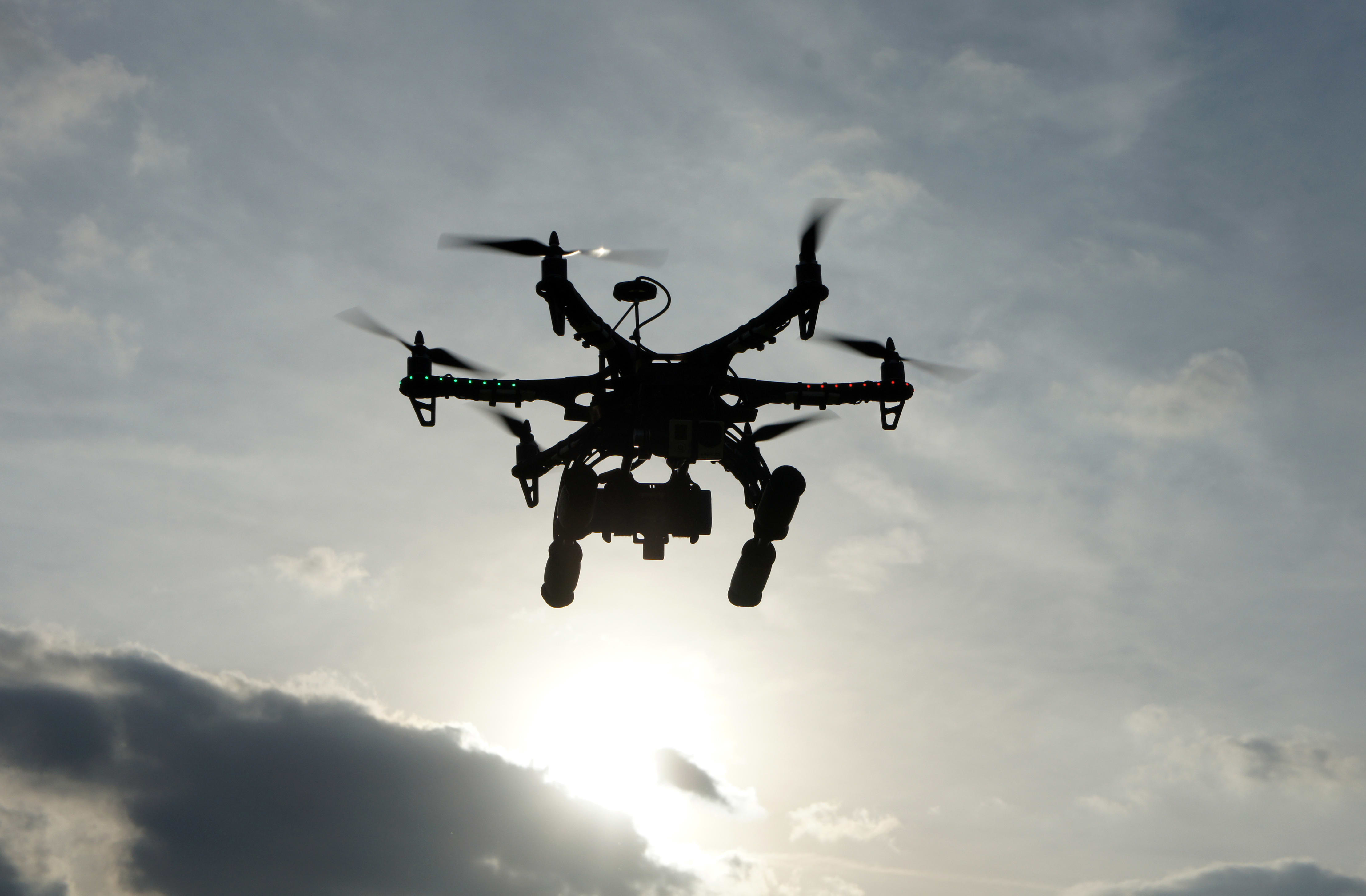Goldman Sachs bankers are using flying drones to help clinch billion-dollar M&A deals

Richard Newstead | Moment | Getty Images
Drones have arrived on Wall Street.
Goldman Sachs, the world's top mergers advisor, is among investment banks using drone technology to give its clients a bird's-eye view of the companies they are bidding on, according to Stephan Feldgoise, the firm's global co-head of mergers and acquisitions.
After Covid-19 made the prospect of hosting in-person visits with groups of bidders unsafe, commercial-grade drones have been used to conduct virtual tours of everything from shipping ports and railroads to chemical factories, warehouses and big-box retail locations, he said.
"We have been selling asset-based businesses all over the world using drones for site visits and fly-overs," Feldgoise said in a phone interview. ``It gives buyers the confidence they need because when you are buying a business, you want to see, touch and feel what you are buying. "
It's the latest example of how the pandemic has forced change onto what had been one of the most old-school, technologically-resistant corners of Wall Street. Investment banking has traditionally relied on platoons of twenty-somethings (using Excel and PowerPoint, software invented in the 1980s) to support senior bankers whose most valuable asset is their relationships, honed over boozy dinners and social events, to corporate officers and board members.
But the coronavirus put an end to the in-person meetings and frequent travel of the due diligence process in mergers and acquisitions. Now, deals are being closed almost entirely on screens, using teleconferencing tools including Zoom, BlueJeans, Cisco Webex and Microsoft Teams. As a substitute for in-person site tours, drones are being used for recorded videos or live sessions.
Of the several hundred transactions that Goldman has advised on during the pandemic, more than 95% were done without any face-to-face interaction, said Feldgoise.
Drones are likely here to stay, he says: "We believe it will change the M&A landscape forever."
Source: TKO Miller
Goldman isn't the only investment bank using the technology, which started out in the military and is beginning to be used broadly in applications from package delivery to monitoring great white sharks. JPMorgan Chase, which has the world's largest capital markets business by revenue, is another firm that has leaned on drone technology in deals, according to a person with knowledge of the bank's processes.
Even boutique investment banks have been using them. When middle-market advisor TKO Miller helped SPI Lighting, a maker of architectural lighting fixtures, sell itself to a competitor, it made a two-minute sizzle reel that began with an aerial view of the 130,000 square foot headquarters, gliding across the firm's factory floor and warehouse.
"We've proven the benefits of drone footage," said Erik Eidem, a veteran TKO banker. "The pandemic made it a necessity, but people are very happy about it, they feel they're getting a better sense of the business early on."
Commercial drones cost roughly $1,000 and up, but bankers typically hire videographers who charge $10,000 and up for slickly produced and edited tours, Eidem said.
The new remote regime has held up during a blistering rebound in deals activity. After a lull in April, May and June, when American corporations focused on raising billions of dollars in debt and equity markets to survive the pandemic, companies then turned to takeovers to reposition themselves for the new reality. Deal announcements jumped 152% in the third quarter to $1.13 trillion, according to Dealogic.
Goldman is the top ranked advisor by deal count and transaction value, followed by Morgan Stanley, JPMorgan and Bank of America, according to the financial data provider.
Source: TKO Miller
The technological shift has changed the usual rhythm of the M&A process, according to bankers. In the past, advisors winnowed potential buyers to a handful, say five, for management presentations. Now, since the process is more efficient, bankers at Goldman and elsewhere are working with twice as many bidders in later stages, increasing the odds of a successful match.
The use of remote technology is likely to have a lasting impact on business travel and even staffing needs at Wall Street firms, even after the pandemic ends. Microsoft co-founder Bill Gates said this month at the New York Times' DealBook conference that more than half of all business travel probably wouldn't return.
In a post-Covid world, bankers will still hit the road, seeking an edge in forming relationships with key players. JPMorgan Chase CEO Jamie Dimon said that for him there was "no way" he would travel less to see clients and employees. But key parts of the deal process that are logistically complex and easier over videoconference will probably remain remote, according to bankers.
"I'm not sure you'll ever again get 40 people in a room to watch a management team do their dog-and-pony show," said a banker who declined to be identified speaking frankly. "To get 40 people on a plane, have them all stay in hotels, to go to a five-hour meeting and to get back, it takes two or three days of your week. Now, it literally just takes the five hours required for the meeting, and you've haven't left your house."
Source: TKO Miller
Source
Check Our More
No comments